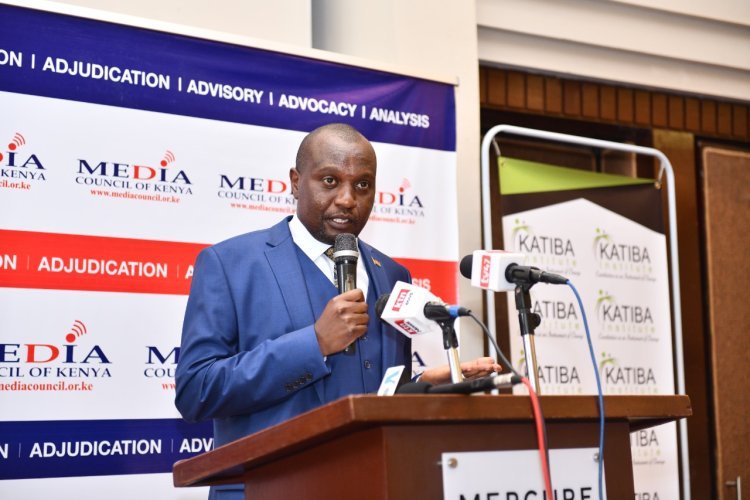MCK Raises Alarm Over Fighting Among Kenyan Journalists
Further, MCK urged media houses to stop publishing one-sided stories written by their respective employees as this causes more confusion and veils facts during a conflict.

The Media Council of Kenya (MCK) has condemned violence perpetrated by members of the Fourth Estate against their own, in response to an incident on Sunday, January 21 where a journalist attached to Radio Africa Group (RAG)'s The Star newspaper was reportedly verbally and physically assaulted by his colleagues in Siaya County.
In a statement on Tuesday, January 23, the council lamented that journalists resorting to instigating physical fights amongst themselves or on members of the public as well as engaging in slander not only jeopardises their professional credibility but also undermines the principles of responsible journalism.
"Journalists have a responsibility to conduct themselves with integrity and decorum, even in the face of aggression. We encourage all journalists to uphold their commitment to truth, accuracy and objectivity, and to prioritise respectful dialogue and constructive criticism over personal attacks or violence," the statement read in part.
Regarding the assault on The Star Newspaper Siaya correspondent Josiah Odanga, MCK Chief Executive Officer (CEO) David Omwoyo expressed dismay towards the public scuffle which involved a journalist attached to K24 TV and another from Royal Media Services (RMS).

MCK CEO, David Omwoyo, speaking during the IDEI 2022 event in Nairobi on November 2, 2022. /MEDIA COUNCIL OF KENYA
"The Council notes that the conduct by The Star newspaper's Josiah Odanga, K24's Mary Goretty Juma and George Amolo of Royal Media Services is unacceptable and undermines the public's trust in the media and imperils the critical role journalists play in our society," Omwoyo reacted.
The Council therefore announced that it is ready to offer its support and assistance to the journalists involved in the incident and encouraged them to seek mediation or other forms of conflict resolution to address the underlying issues and prevent future violence.
Further, MCK urged media houses to stop publishing one-sided stories written by their respective employees as this causes more confusion and veils facts during a conflict.
"The Council remains committed to working with all stakeholders to create a more respectful and collaborative media environment. We believe that journalists can, and should, work together to hold power to account, inform the public and contribute to a better society," MCK added.
The Council investigated the incident and urged the relevant media organisations to equally undertake a comprehensive investigation and take appropriate disciplinary action against those involved, warning that any accredited journalists engaged in such altercations risk losing their registration with the MCK.
Omwoyo also confirmed that the three journalists were fully accredited by the Media Council of Kenya and are free and should be enabled to work in any part of Kenya irrespective of their place of origin.
"The Council believes in upholding the highest ethical standards within the journalism profession, and this includes addressing internal conflicts in a professional and constructive manner," the statement added.
The scuffle between the three journalists stemmed from a misunderstanding that ensued before the coverage of a news event involving an area Member of Parliament (MP).
Odanga was attacked at Karariw Primary School where Gem MP Elisha Odhiambo was distributing bursaries to needy students. He and the alleged attackers were among 10 journalists invited to cover the MP's event.
"I was conversing with a colleague when Amollo came, pointing at my eyes as if to pierce them with his fingers while verbally insulting me. I implored him to calm down and make his cause of anger known without being emotional, but he refused to listen to the voice of reason," Odanga told the media.
"She first wanted to hit me with a camera tripod but I disarmed her before she hit my head with the camera, causing a dent that led to profuse bleeding."
Odanga allegedly suffered a blow to the head, leaving a gaping wound and the consequent oozing of a lot of blood. Additionally, his mobile phone and smartwatch were also damaged by the wayward journalists.

 admin
admin 





